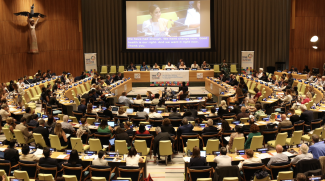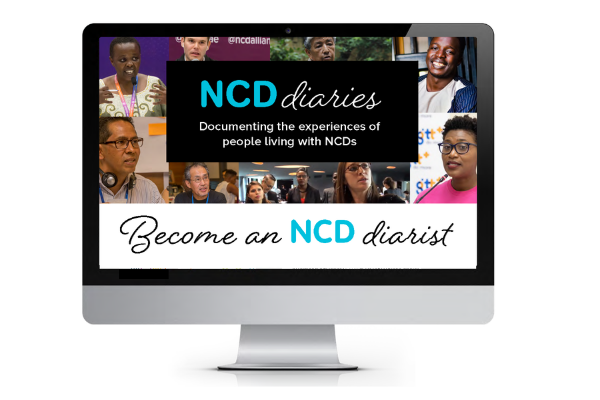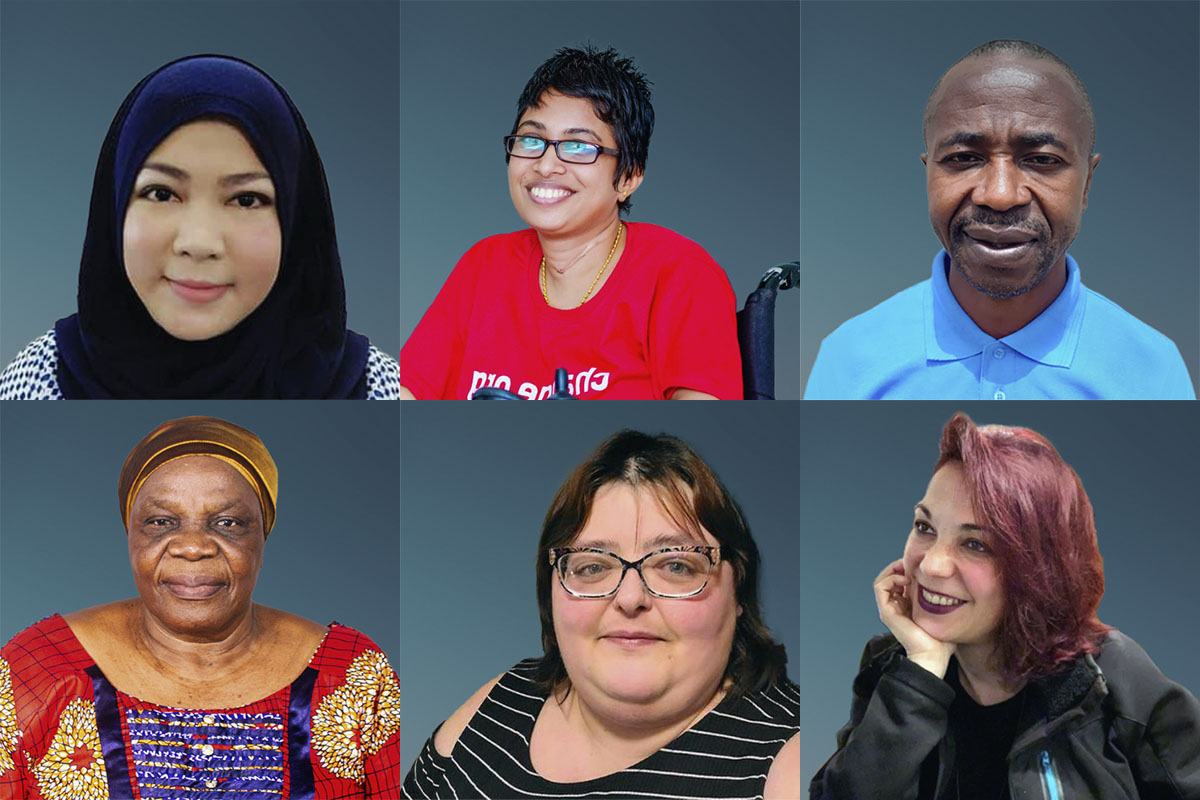“As a woman in a developing country, growing up with type 1 diabetes is a lot like walking the tightrope in circus clothes under the spotlight your entire life... There are obvious cracks in our society and health system and gaping holes where there should be support and communities to ease the transition from a diagnosis into the new normal,” writes Nupur Lalvani from India in her NCD Diary.
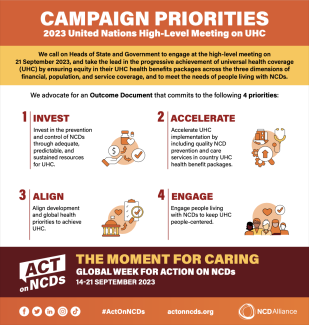
“Everyone, including all marginalised groups, deserves the right to health and a life of dignity, without stigma and loneliness… People living with NCDs deserve humanity andaccess to affordable treatment, support and care to manage their conditions irrespective of race, caste, class, poverty etc,” adds Nupur in the Diary, part of the NCD Alliance (NCDA) Our Views, Our Voices initiative (OVOV).
Now a member of the OVOV advisory committee, Nupur will be one of many speakers at a multistakeholder hearing on Universal Health Coverage (UHC) being held at the United Nations (UN) in New York on 9 May. Speakers will also include Monika Arora, President-Elect of the NCD Alliance and Alison Cox, Policy and Advocacy Director of the NCD Alliance.
The purpose of the hearing is to collect ideas from all stakeholders - including people living with NCDs - on urgent actions and investments in health needed to speed up progress towards achieving UHC by 2030, the end date of the SDGs. UHC is healthcare that is affordable, and accessible, to all people. It includes financial risk protection, access to quality essential health-care services and to safe, effective, quality and affordable essential medicines and vaccines for all, as defined in the UN Sustainable Development Goals (SDGs), goal 3.8.
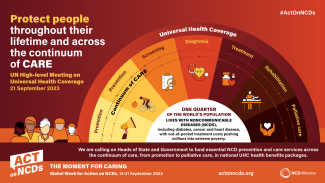
Also on 9 May in New York, in conjunction with the hearing on UHC, NCDA and partners will be hosting a gathering of advocates called Enabling People Living with NCDs’ Right to Health through Universal Health Coverage. This event will aim to:
- Bring the experiences of people living with NCDs to the UN;
- Position action on NCDs as key to the progressive realization of UHC;
- Present the NCD communities’ UHC advocacy asks;
- Engage stakeholders in calling for NCD supportive text to be included during negotiations for the political declaration that will be issued at September’s HLM on UHC.
The event will co-hosted by the Permanent Mission of Bangladesh to the UN, the Permanent Mission of Jamaica to the UN, WHO Office at the United Nations, and The Leona M. and Harry B. Helmsley Charitable Trust. Participants will include people living with NCDs, experts from civil society, WHO representatives, and state actors, who will explore ways to integrate NCDs into the upcoming UN HLM through a lens of lessons learned and best practices. They will also analyse how integrating NCD priorities can strengthen and reinforce UHC. The event is open for registration.
NCDA’s policy brief on advocacy priorities for the HLM on UHC notes that although NCDs are the leading cause of death and disability and account for 74% of deaths globally, many countries are lagging behind on integrating NCDs into UHC health benefit packages and are not on track to attain the SDGs. Although limited, globally available data on the inclusion of NCD prevention and care in UHC packages shows wide gaps in coverage for NCD services between countries, and that more than half of countries are likely to miss SDG target 3.4 on NCD mortality reduction.
NCDA advocates that quality primary health care must form the basis of strong and resilient health systems that are able to deliver UHC across the full continuum of care, from health promotion and prevention to diagnosis, treatment, rehabilitation, and palliation. Yet, many inequalities persist in terms of NCD risk, access to services, and health outcomes, too often pushing households into cycles of poverty due to out-of-pocket spending on health.
Governments need to recognize the needs of people living with NCDs, invest in the prevention and control of NCDs through adequate, predictable, and sustained resources as part of their UHC plans, and include NCD prevention and care services across the continuum of care and life course in their UHC health benefits packages. By doing so, they will be able to address the two intertwined goals of UHC and health security and move towards sustainable development.

